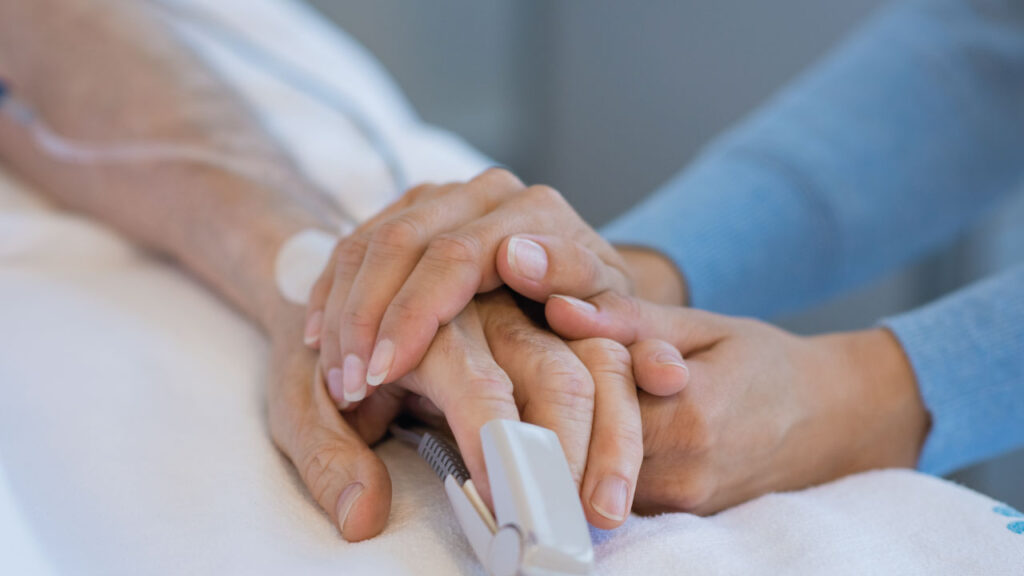Being ill, whether for a simple or more serious reason, is never easy. In a situation of fragility, the least anyone deserves is to be treated with respect, empathy and dignity. In Portugal, fortunately, patients’ rights are well defined and protected by law, but they are not always known by those who need them most.
What are patients' rights in Portugal?
These rights are provided for in Law no. 15/2014, the Basic Health Law, the Charter of the Rights of the Hospitalized Patient, among other pieces of legislation. Here are the main ones, in simple format:
- Right to dignity, respect and non-discrimination
- The right to adequate, timely and quality health care
- Right to clear, objective and accessible information on health status
- Right to accept or refuse examinations, treatments or interventions
- The right to a second medical opinion
- Right to spiritual and religious assistance
- Right to be accompanied by a family member or nominated person
- Right to privacy in all clinical acts
- Right to confidentiality of clinical and personal data
- Right of access to medical records
- The right to submit suggestions, complaints or denunciations
- Right to continuity of care after hospital discharge
- Right to individual freedom, with legal exceptions.
The Patients' Bill of Rights: what is it?
The famous Charter of Patients’ Rights, approved by the Ministry of Health, brings together a set of principles that guarantee that every person is respected as a user of the health system. Many of these rights are enshrined in the Constitution of the Portuguese Republic, in the Basic Law on Health, and in international documents such as the Charter of Fundamental Rights of the European Union.
You can consult the version published by the Portuguese Medical Association or on the SNS24 website.
Right of access to clinical information and data protection
Being hospitalized can be distressing and, for this reason, the rights of hospitalized patients include special care:
- Facilities adapted to patient comfort and well-being
- Right to privacy and tranquillity, including during hygiene care or rest
- Clear information about hospital services (meals, visits, spiritual support, etc.)
- Prohibition of discrimination based on age, gender, ethnicity or religion
- The right to visits, whenever the clinical situation allows.
In the case of children, the Charter for Hospitalized Children which guarantees, among other things, the continuous presence of parents.

Cancer patients' rights
People diagnosed with cancer face very specific challenges. The rights of cancer patients include:
- Access to specialized and humanized healthcare
- Respect for the patient’s emotions, fears and decisions
- Proper monitoring at all stages of the disease
- Psychological and social support
- Possibility of receiving palliative care with comfort and dignity
- And, in many cases, the right to free transportation to treatments such as consultations, chemotherapy or radiotherapy, especially when the patient is frail or has no means of travel of their own.
Rights of the terminally ill patient
When a patient is terminally ill, the focus becomes comfort, well-being and respect for their wishes.
The rights of the terminally ill patient include:
- Receive adequate palliative care
- Be accompanied by whoever you want
- Control over treatment decisions
- The right to tranquillity, privacy and a welcoming environment.
Informed consent: what it is and when it is mandatory
Informed consent is the patient’s right to make a free and informed decision about what is going to be done to them. To do this, they must receive clear, accessible information that is appropriate to their level of understanding.
It is mandatory in situations such as:
- Surgeries and invasive acts
- Administration of blood or blood derivatives
- Voluntary termination of pregnancy
- Prenatal diagnosis with invasive techniques
- Sterilization or medically assisted procreation
- Participation in clinical trials or medical research.
Note that even after giving consent, the patient can back out at any time.
How to file a complaint with the health system
Everything doesn’t always go smoothly. There may be mistakes, misunderstandings or situations in which the patient feels disrespected, ignored or mistreated. If this happens to you or someone close to you, don’t be afraid to take action. Complaining is not being annoying. It’s exercising a right. It’s contributing to a fairer, more humane and more efficient health system.
Here are the steps you can take calmly and confidently:
- Talk to the person who attended you first. Sometimes all it takes is a conversation with the healthcare professional or the person in charge of the service to clarify the problem
- If it doesn’t work, fill in the Complaints Booklet, available in physical format, on site, or online
- You can also go to the User’s (or Citizen’s) Office at the hospital or health center. They are there to listen to you
- If the situation is more serious or is not resolved, you can complain directly to the Health Regulatory Authority (ERS)
- And if you really are facing an unfair situation with serious consequences, you can go to court, with legal support.
If you need help or don’t know where to start, you can also call DECO PROTeste which provides consumer support in the health area: 808 780 250 (landline) or 218 418 783.
Remember: complaining is also taking care of yourself and others. And everyone deserves to be treated with respect and dignity.
Need help getting the care you need? Ambula will help!
If you are entitled to non-urgent patient transportation – due to a doctor’s prescription, disability or clinical situation – know that you are not alone: Ambula is to accompany you safely, comfortably and with all the empathy you deserve.
Whether for physiotherapy sessions, cancer treatments or hospital appointments, you can count on a reliable, punctual and humane service.
Talk to the Ambula team team for more information on how to schedule your transportation.




